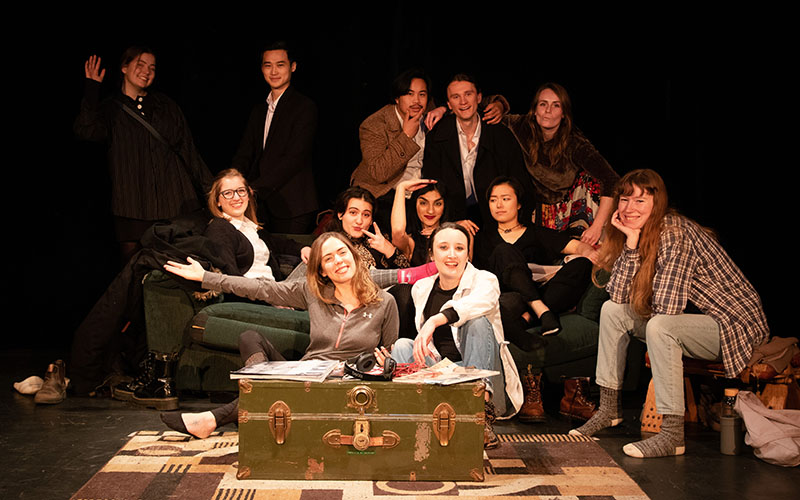Continuing its acclaimed annual tradition, the McGill Department of History and Classical Studies held its McGill Classics Play, Medea from Feb. 5-8 at the Mainline Theatre. This classical text, written by Euripides, is a sequel to Jason and the Argonauts—the Ancient Greek myth where he finds the golden fleece. This time, the story focusses on Medea, Jason’s now ex-wife he returned with from his quest. He then goes on to dump her for a Corinthian princess once she has left her entire world and kingdom behind for him. The play follows Medea navigating the consequences of this catastrophe and enormous insult, which she does in a very Greek tragedy way.
While Professor Florence Yoon from the University of British Columbia (UBC) and Professor Lynn Kozak from the McGill Classics Department oversaw the production as a whole, two student directors, Marina Martin (B.A. ‘19) and Michaela Drouillard (U3 Arts), translated Medea from the original Ancient Greek text.
“Translating Medea was weird,” the pair wrote in their directors’ note. “Throughout the process, we learned that it was less important for a play to look and sound like the original world it claims to represent.”
Martin and Drouillard found that they were able to take what they needed from the Greek text in order to give themselves room to voice their message and to be able to have fun with it.”
The play perfectly blended the contemporary into the classical and tragic setting. The presence of podcasts, text messages, and plenty of other anachronisms did not feel forced. Rather, the production felt mature and comfortable in its own skin and, at the exception of certain out-dated plot points and archaic tones adopted for the purpose of dramatic effect: The juxtaposition of lines such as “You wanna get an Uber?” and “I killed those dragons for you” often feel contrived. Besides that, the play could blend perfectly into today’s setting, as seen impressively in the chorus.
Featuring a cast of undergraduate and graduate students, the group fully functioned as one, and yet it was executed in such a way that impressed with its normality and ease. The group acted like friends gossiping, producing a continuous dialogue that was quick, witty, and entertaining all the while maintaining a necessary commentary that made its role feel as whole as it did.
Of course, the two main characters that occupied the centre of the stage were Medea (Niamh Power, M.A. Psychology) and Jason (Tom Giles). Giles played a heinous Jason, and yet the pain he felt at times was so well communicated that he was able to shift the feeling of the entire theatre from one extreme emotion to the next. Power’s portrayal took up all the stage and her Medea was a loud and powerful character furthered the blending of modern and ancient as well as pain and revenge into a seamless and smooth work.
Perhaps the play could have lasted a bit longer as it was only a bit more than an hour which only revealed a small portion of what could’ve been possible for the actors and for the play. All the while, it remains a great play that did not disappoint in maintaining the presence of Classical texts and Greek mythology in today’s world.








